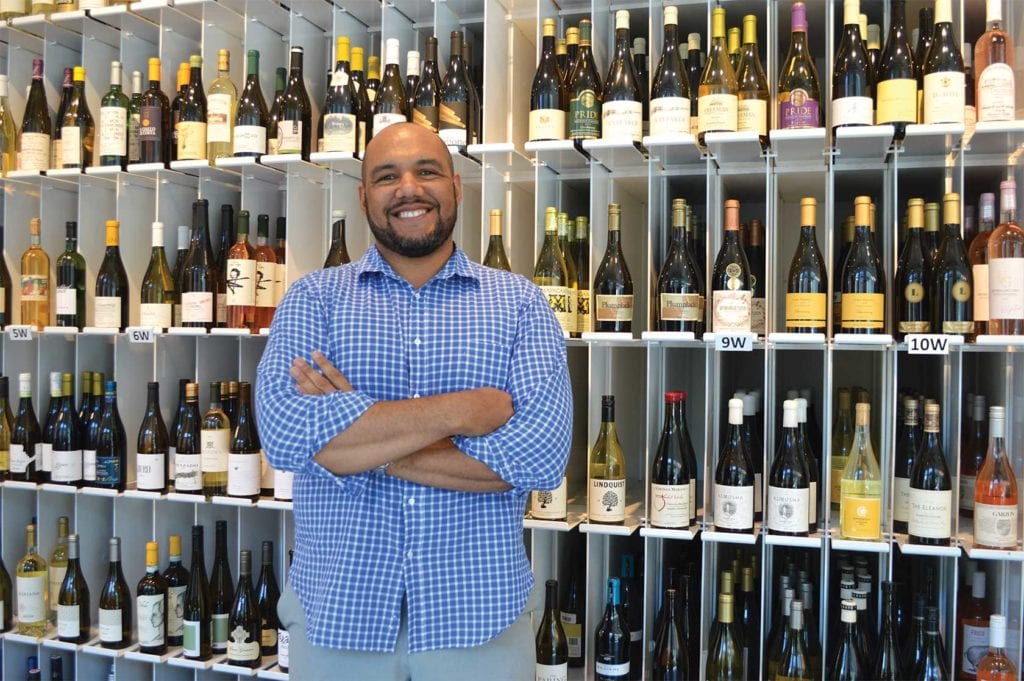Black businesses are booming
Many business owners doing better in wake of Floyd murder

Violet Francis started out catering for friends, making huge meals of Caribbean cuisine in the kitchen of her local church. At first, she struggled to obtain a business loan, before finally succeeding and opening her own restaurant in 2013.
Business was never really booming at Auntie Vie’s Restaurant and Bakery until this past year, when Francis said more people — including a lot more white people — started showing up and asking how to support her small, Black-owned eatery in Dorchester. The new customers order fried Johnny Cakes, goat stew, jerk chicken, coconut turnovers, salt fish patties and other dishes from her native Montserrat, a small island in the British West Indies.

Violet Francis, 66, with her son, Valroyce Francis, 31, in the kitchen at her restaurant, Auntie Vie’s Bakery & Restaurant, in Dorchester. Photo: Tori Bedford GBH News
“A conversation has been happening, especially with, you know, Black Lives Matter, and a lot of people have been coming in and trying to support us here,” said Francis, 66. “I believe they genuinely want to support us. They want to see us thrive in the community.”
The murder of George Floyd in Minneapolis a year ago put a spotlight on racial inequality in all forms — including business. The resulting conversation about race has changed where many consumers have been spending their cash. Searches on Yelp for Black-owned businesses across the country jumped 3,085% from February of 2020 to February 2021, according to a data analysis by Yelp.
Advocacy around consumer spending has also picked up — the Black Economic Council of Massachusetts (BECMA) released a list of local Black businesses to support, and the message to support the Black community through spending has been repeated at local protests and rallies honoring Floyd over the past year. Owners of Black businesses like Auntie Vie’s, Obosa Restaurant in Roslindale, Fusion Dolls in Brockton, Tiana Bay Boutiques in Canton, Happy Beans Coffee Roasters out of Framingham, and Trillfit, a fitness studio in Roxbury, told GBH News that the extra support has kept them afloat, counterbalancing the financial hit from the pandemic.
“When you take the action that is needed to help someone who is a small business, I think that’s what it’s all about,” Francis said. “Not just to talk the talk, but to actually walk the walk, to actually see some action behind what you are saying.”
Jae’Da Turner, founder and managing director of the marketing agency Black Owned Bos., said the ongoing push towards supporting local entrepreneurs of color is about much more than just doing the right thing.
“It’s not just supporting a business because it is Black-owned. That’s never the purpose,” Turner said. “It’s about creating those touch points for visibility, especially in a place like Boston where it is extremely segregated.”
In May, Black Owned Bos. launched the first in a series of outdoor summer marketplaces in Boston’s overwhelmingly white Seaport neighborhood. The goal, Turner said, is to introduce tourists and residents to local Black-owned shops like Ankhara By Luciana, a home decor business run by Luciana Daily, who said she’s also seen more support this past year.
“I know my community loves my work. I know my family loves my work,” Daily said, “but to have somebody outside of the community come in and say, not only am I going to support you, but, you know, you have a great product, and then refer me on to other customers, it’s been humbling.”
Daily says the movement to support small Black-owned businesses like hers has been validating and has expanded her network beyond her Mission Hill neighborhood.
“It’s making corporate and white America reconsider having us in spaces like Wellesley, Needham or Newton, where, I mean, you don’t see many of us there,” she said.
Turner of Black Owned Bos. said events like the outdoor markets are part of a larger effort to address systemic racism in the business world.
“That systemic issue comes from a number of different places,” she said. “Maybe it’s loans, maybe it’s just access to mentors, maybe it’s access to opportunities or just role models, or access to capital, which is probably the biggest hurdle to Black-owned businesses.”
Last month, the Boston Foundation released a series of recommendations to improve access to capital for Black-owned businesses in Massachusetts, where 18 percent of entrepreneurs are people of color — but 10 percent of small business loans go to neighborhoods that are majority people of color, according to the foundation’s “The Color of the Capital Gap” report.
“The pandemic has shed light on just how undercapitalized, underinvested and vulnerable many entrepreneurs of color are, due in large part to systemic barriers,” the report reads. “Even the government relief programs meant to reach entrepreneurs of color and other underserved groups were inequitably distributed.”
The report highlights disparities in access to capital. In Massachusetts, the foundation estimates that the annual unmet demand for capital among entrepreneurs of color is at least $574 million.
Entrepreneurs of color are less likely than white entrepreneurs to receive external financing, and Black-owned small businesses are twice as likely as white ones to not receive the financing they request, according to the foundation’s report.
That’s what caused entrepreneurs TJ and Hadley Douglas to rely on their own funding when starting their wine shop, Urban Grape, in 2009.
“We emptied out our 401(k)s. We emptied our savings,” Douglas said. “We took a second mortgage on our house.”
When he initially tried to get a business loan, Douglas was told that he was too much of a risk. At the time, he said he accepted it and kept moving forward.
“But, you know, as the years went on, and especially this last year, I’m looking back at all of the different moments of my life, and I’m like … ‘Huh,’” Douglas said. “I think that was because I’m a minority.”
Douglas said in the last year, the store’s revenue increased about 65 percent — with a broader range of customers from around the city and state beginning to shop at the store.
“We have so many more customers,” he said, “and the demographic of the people coming in and out of the store and shopping online and the areas around Massachusetts that we’re now delivering to is totally different than it was a year ago.”
Urban Grape’s website now features collections of wines made by people of color, LGBTQ winemakers and female winemakers. Last summer, Douglas launched the Urban Grape Wine Studies Award to bring students of color into the predominately white world of wine.
Not everyone was happy about this shift, he noted.
“We’ve lost some customers — it totally doesn’t even compare to how many customers we’ve gained — but we lost some because they’re like, you know, I just want to come in and buy wine. I don’t want to talk about you being Black or you being a woman or, you know, anything like that,” Douglas said. “And I’m like, ‘OK, great. You don’t need to be in my world.’”
It seems that world is becoming larger, through a gradual shift that could mean new business for places like Auntie Vie’s in Dorchester.
Violet Francis said she still hasn’t reached the point yet of making a profit — but she hopes the current movement can get her there.
“If they keep coming, then we will get to that point, that’s where we are hoping to go,” she said. “I’m hoping for more community support, and as the word goes out, to be able to go beyond just sustaining but being able to be successful.”
Tori Bedford (she/her/hers) is a reporter at WGBH News and produces the All Rev’d Up podcast.






